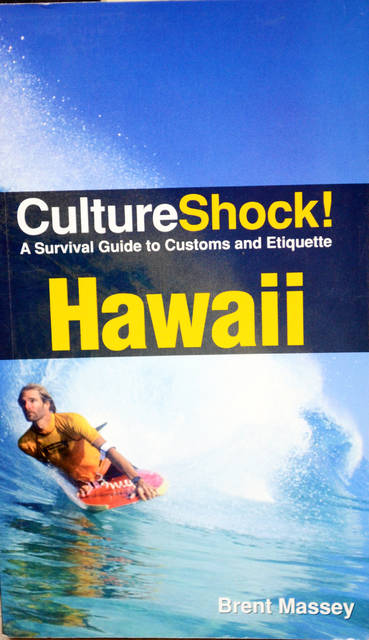Not long after I moved to Kauai in 2013, a friend gave me a book she said would be invaluable for life in Hawaii. She was right.
The book, “Culture Shock! A Survival Guide to Customs and Etiquette Hawaii,” by Brent Massey, is one of those must-reads for anyone who wants to live here, and might even come in handy for those who do live here.
Little upsets locals more than newbies and visitors who show little respect for the customs, cultures and traditions of Hawaii. They can understand that you don’t know everything about Hawaii and its history and how to pronounce Hawaiian words. But their tolerance is limited for those who are disrespectful of, really, the basics, like green sea turtles are great to see, but don’t approach and touch them. Snorkeling is a wonderful activity, but don’t stand on the reefs.
Massey writes that people in Hawaii are — contrary to common public perception that they don’t like anyone from the mainland — friendly, helpful and kind with a smile. But they aren’t big on those who are rude.
So, to help you navigate your way, Massey offers tips on fitting in, settling in, enjoying Hawaii, working in Hawaii, learning the language and the history of the islands.
He sums things up well with this paragraph:
“You may know Hawaii’s travel industry’s advertising, but most don’t know the history of Hawaii or even Polynesia. You are at a disadvantage, having so much information and lack of information. It is common to assume that moving to Hawaii is like moving to any other state in America; after all, how different could it be?”
“Hawaii has a long history that is different from mainland USA.”
Hawaii is different, as anyone knows who visits or lives here. It’s not like where you came from and, as they will tell you, if that’s what you want, go back home. For instance, I came from Idaho, an in-your-face state where people speak their mind and don’t pretend to like you if they don’t. If someone was upset with something I wrote in the newspaper, they called me up or just came down to the office. My old boss told me of a story in Idaho where a public official came to visit him shortly after he started his new job as the editor, and told him he wanted him fired and he thought he should know that, up front. That wouldn’t happen here. Blunt speaking is frowned upon, and if you do that, don’t expect to be invited to pau hana events.
Massey does a good job of very clearly outlining the customs of Hawaii and offering tips to newcomers on what to do, what to avoid, how to get along and how to understand what you don’t understand about life here.
It’s a book filled with good information you need to know about Hawaii.
His goal with it is to help prevent you from being frustrated, isolated, deciding you made the biggest mistake of your life and packing your bags to return home.
“There are thousands of people who move to Hawaii each year and then move back to the mainland a year later,” Massey writes. “This book will help you avoid being another short-timer statistic by dispelling the misinformation, myths and stereotypes you may have already learned about Hawaii.”
Well said.
•••
Bill Buley, editor-in-chief, can be reached at 245-0457 or bbuley@thegardenisland.com.





I would also recommend “KPD Blue: A Decade of Racism” as a more accurate depiction of “localism”, (not to be confused with a blanket indictment of all local people here, just a segment that is steeped in incorrigible prejudice toward whites). Massey’s book starts from the premise that newcomers are always the ones in the wrong and in need of an attitude adjustment, when actually many locals take a negative attitude toward whites as their default position. Maybe by reading both, newcomers and locals can get a rounded and realistic picture of what this island is all about.
Now that was a stupid article. Shouldn’t the book just be titled:
“An Idiots Guide on how not to be an Arrogant Jerk” ?
It’s pretty stupid to suggest that all people in Hawaii react to things in the exact same way.
These “move to Hawaii” books are very ignorant and condescendingly racist at their core.
Uhhh, is the author of this book a local, born and raised in Hawaii…? No? Then GTFO. Actually, anybody who actually feels the need to read this book, BYE, Hawaii doesn’t need or want anymore like you.